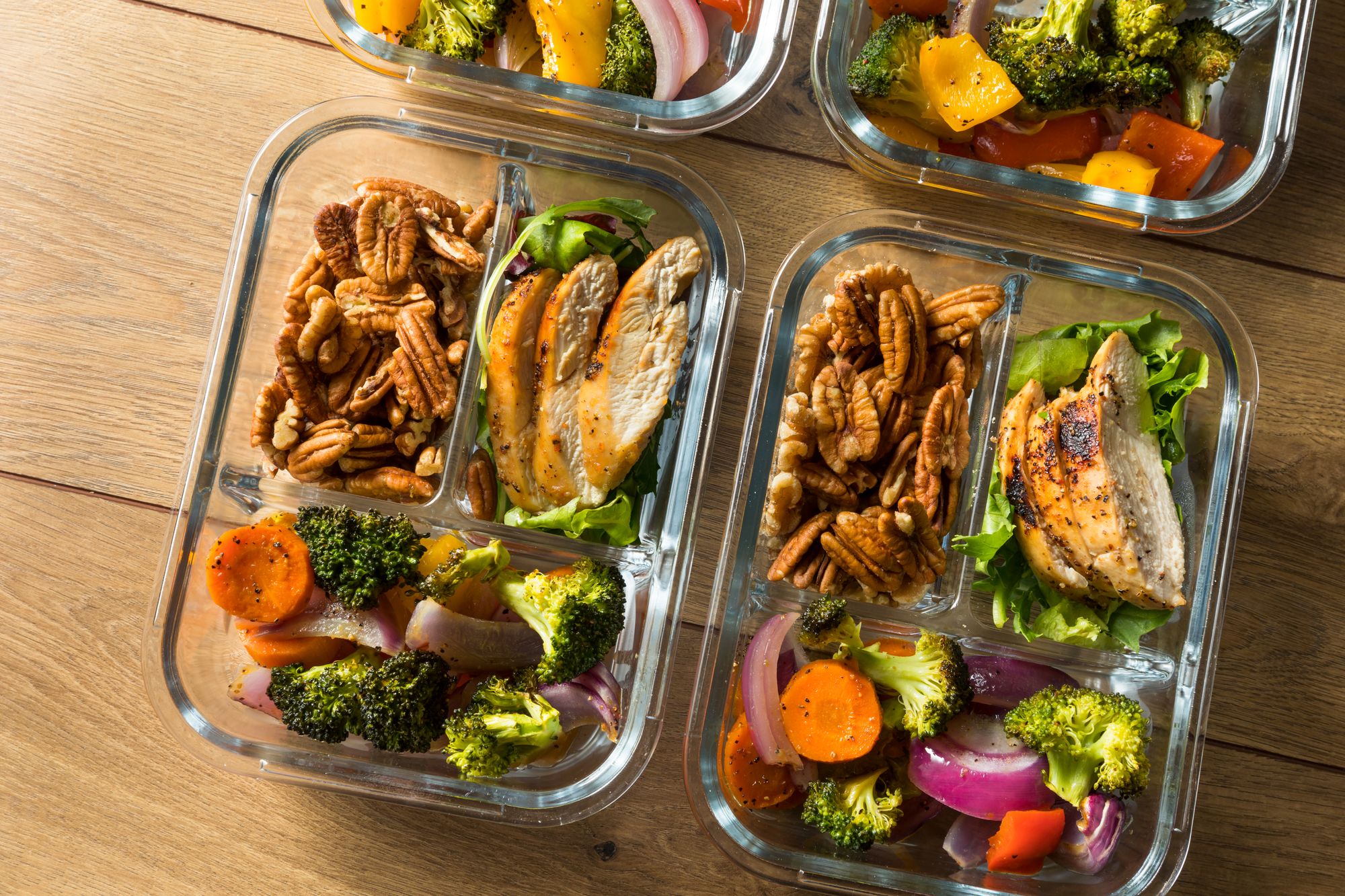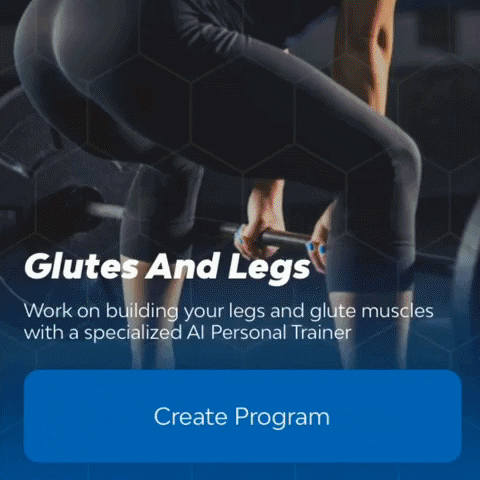Struggling To Lose Weight? Take a Look at Ketogenic Diets
By now, it must be near impossible for you to take part in dietary-related conversations without the mention of the word “ketogenic.” From its purported enhanced fat-burning effects to its potential to cure cancer, it seems that there’s nothing this low-carb diet can’t do.

???
By now, it must be near impossible for you to take part in dietary-related conversations without the mention of the word “ketogenic”. From its purported enhanced fat-burning effects to its potential to cure cancer, it seems that there’s nothing this low-carb diet can’t do.
But does this diet help you burn the fat off quicker? Let's take a quick look at the available evidence.
What is a ketogenic diet?
Many people think that the ketogenic diet is just a 'low-carb' diet. But it's not. You see: the definition of a ketogenic diet extends beyond that of a simple reduction in carbohydrates. A real ketogenic diet is one where carbohydrates intake is so low (typically 50 grams or less per day) that you'd force your body into a metabolic state of ketosis.

In ketosis state, your body switches from burning glucose as the primary fuel to burning ketones and fatty acids. But wait – what are ketones? Well, they are chemicals that are produced when your body burns fat for energy.
In the metabolic state of ketosis, the level of ketones available in your blood should exceed 0.5 millimoles per liter (mmol/L). And how would you know if you’re in ketosis? You’d only ever know for sure if you sent your blood for testing.
So – does it help with faster weight loss?
Let's say that you've managed to achieve a state of ketosis. Would the ketogenic diet help you with more significant weight loss? Well, I hate to break it to you, but no.
Controlled trials show no mechanical advantage in fat loss when ketogenic, and non-ketogenic diets are compared under tightly controlled conditions. Additionally, meta-analyses of fat loss studies show no significant or meaningful differences between high and low-carbohydrate diets.
Okay, why is it so popular then?
But if the ketogenic diet offers no fat loss advantage over traditional dieting methods, why is it so popular? A combination of three crucial factors can explain its popularity:
1. Easy to follow – Practitioners of the ketogenic diet only need to account for two macronutrients (protein and fat) in their daily meals, this uncomplicates things.
2. Short-term hunger-blunting effects – In the short term, a ketogenic diet may suppress appetite even when compared to a diet with equal protein.
3. The initial loss of water weight – In the first few days of starting the diet, there is a significant reduction in glycogen stores in the muscle, which results in a pronounced loss in water weight that shows up as extra pounds lost on the scale.

Tell me, should I try the ketogenic diet?
I know, even if all the available evidence stacks up against the ketogenic diet, you'd still be curious to test it out for yourself. Obviously, I don't have the power to stop you. But I thought you'd like to keep the following pointers about ketogenic diets in mind:
· May be inferior for muscle gain purposes
As you should know by now, a caloric surplus is needed if you want to gain muscle; this is especially so if your body fat isn't high, to begin with. Due to the appetite-blunting effects of a ketogenic diet, you may find it challenging to consume enough calories throughout the day to support muscle growth.
· May harm your performance in the gym
Studies examining more glycolytically-dependent training (such as high-repetition, low rest period bodybuilding) suggest that ketogenic diets could potentially harm sports performance; being less than ideal for resistance training.
· Inherently restrictive
Do you know what 50 grams of carbohydrates look like? Well, it’s two slices of whole-wheat bread. Or 1 medium potato. Or 2 cups of cooked oatmeal.

My point is that the ketogenic diet is inherently restrictive. You have to (nearly) eliminate an entire macronutrient group from your diet. Even if you eventually adapt to the ketogenic diet, you may – in time to come – develop a negative relationship with food.
It comes down to calorie balance
I hate to sound like a broken record, but calorie balance is – ultimately – the secret to a lean body. If you consume more calories than you burn, you're going to gain weight. On the other hand, if you consume fewer calories than you expend, you're going to lose weight.
So – if you don't think you can live without indulging in pizza or a whole plate of pasta, then the ketogenic diet is not for you; even if it offers fat loss advantages over other diets. Which, as you should know by now, it does not.
Bottom line
On balance, the best diet for you is still one that is calorie and protein-sufficient, nutrient-dense, and that you can adhere to over the long term. Over time, any differences between otherwise healthy diets are small.
The most significant variations in results people derive from a diet have a greater tie to behaviors, mindset, and the psychology of eating. Which is why differing diets have such avid devotees – these devotees have found something that works for them, and to them, that's all that matters.
While I'm not sure how the ketogenic diet will eventually pan out for you, I'm at least confident of one thing.
What's that? Well, you can speed up your fat loss efforts – massively – by consistently hitting the gym. Don't know what to do in the gym? Well, why don't you download GymStreak? This smart, AI-powered app provides you with a personalized training plan, so you know how to program your training to achieve your fitness goals. And it might even make you fall in love with working out! No excuses now.

References
Escobar, K. A., Morales, J., & Vandusseldorp, T. A. (2016). The Effect of a Moderately Low and High Carbohydrate Intake on Crossfit Performance. International Journal of Exercise Science, 9(3), 460–470.
Gibson, A. A., Seimon, R. V., Lee, C. M. Y., Ayre, J., Franklin, J., Markovic, T. P., … Sainsbury, A. (2015). Do ketogenic diets really suppress appetite? A systematic review and meta-analysis. Obesity Reviews: An Official Journal of the International Association for the Study of Obesity, 16(1), 64–76. https://doi.org/10.1111/obr.12230
Hall, K. D. (2017). A review of the carbohydrate-insulin model of obesity. European Journal of Clinical Nutrition, 71(3), 323–326. https://doi.org/10.1038/ejcn.2016.260
Hu, T., Mills, K. T., Yao, L., Demanelis, K., Eloustaz, M., Yancy, W. S., … Bazzano, L. A. (2012). Effects of low-carbohydrate diets versus low-fat diets on metabolic risk factors: A meta-analysis of randomized controlled clinical trials. American Journal of Epidemiology, 176 Suppl 7, S44-54. https://doi.org/10.1093/aje/kws264
Johnston, B. C., Kanters, S., Bandayrel, K., Wu, P., Naji, F., Siemieniuk, R. A., … Mills, E. J. (2014). Comparison of weight loss among named diet programs in overweight and obese adults: A meta-analysis. JAMA, 312(9), 923–933. https://doi.org/10.1001/jama.2014.10397
Sawyer, J. C., Wood, R. J., Davidson, P. W., Collins, S. M., Matthews, T. D., Gregory, S. M., & Paolone, V. J. (2013). Effects of a short-term carbohydrate-restricted diet on strength and power performance. Journal of Strength and Conditioning Research, 27(8), 2255–2262. https://doi.org/10.1519/JSC.0b013e31827da314
Westman, E. C., Mavropoulos, J., Yancy, W. S., & Volek, J. S. (2003). A review of low-carbohydrate ketogenic diets. Current Atherosclerosis Reports, 5(6), 476–483.
